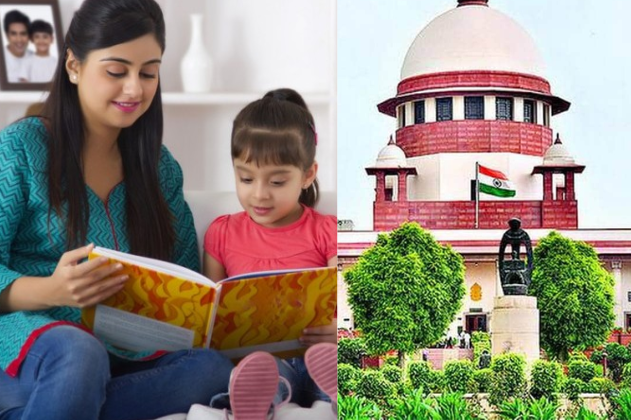Recently, a Delhi court gave a verdict in favor of grandmother-in-law that her grandson’s wife cannot live in the house without the consent of grandmother-in-law. The elders in the society and especially in the big cities are forced to bear the excesses of their own children. This decision has come on a petition filed in the court by an 80-year-old woman. This old lady did not want her grandson’s wife and her relatives to live in her house.
Living in old age with dignity has become a challenge these days. The court has already ruled against the son and daughter-in-law, saying that they cannot live in the house built by their parents without their permission.
After this, this decision in favor of grandmother-in-law shows that in view of the changes in the society, the courts are taking realistic decisions. This is in stark contrast to Indian tradition, which says that the in-laws house remains the daughter-in-law’s home after marriage. The legal position regarding self-acquired property has changed completely.
This issue has become more important after the domestic violence law. If she has bought a house with her husband, then as a security law, the woman has been given the right to live in it. This right is in addition to a woman’s right to alimony and protection from mental and physical violence.
The Supreme Court gave a judgment in 2016, in which the court took the initiative to save senior citizens and thwarted attempts by abandoned daughter-in-law to leave the house. The daughter-in-law objected to this. His argument was that he was legally married and therefore he too had a right to the property.
He claimed that the said property was taken from the money of the entire family. Citing the Domestic Violence Act, the daughter-in-law said that she also has a share in the property and can live in that house. But her father-in-law had applied in the Delhi court to keep her in the house. His argument was that the daughter-in-law has no right to live in the property acquired by me.
It is not an ancestral property and has been bought with joint family money. He argued that neither the Domestic Violence Act nor any other law allows the daughter-in-law to stay in the house without the consent of the in-laws.
The apex court observed that the daughter-in-law has no right in the property self-acquired by the father-in-law. Not at all, as long as the father-in-law has permission. This proved that as long as the husband of a woman has any right in any property, the said woman cannot have any right. Especially in the case of in-laws’ property.
The Delhi High Court had also said in a decision some time back that even a son can live in the parents’ house only as long as the parents have their permission. He cannot exercise a legal right to reside in it. This is in the event that the father himself has purchased the said property. But if father’s father i.e. grandfather had bought the property then the situation could be quite different. It is also important that the daughter has equal rights in the property of the parents. This has become possible after the changes in the Hindu Inheritance Act.
It is noteworthy that even before 2005, the right of son and daughter in ancestral property used to be different. The daughter was entitled in the property of the ancestors in addition to the property of the father until she was married. After marriage, she was considered a part of the husband’s family. Before the amendment, the right of a daughter after marriage in a Hindu Undivided Family was no longer there.
After the amendment, the daughter, whether married or not, is also considered entitled in the HUF of the father. He can even be made a Karta, who is considered the head of that property. After the amendment, he is considered as equal sharer of the son in the maternal house. Still, she has this right in her in-laws’ house only to a very limited extent.
Fact: Two years ago, a court in Delhi had sentenced a woman to pay a fine of Rs 1 lakh for filing a false complaint of domestic violence. The judge who sentenced was also a woman.


